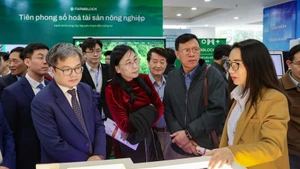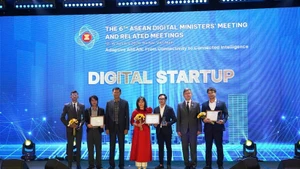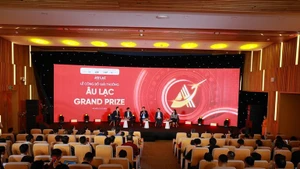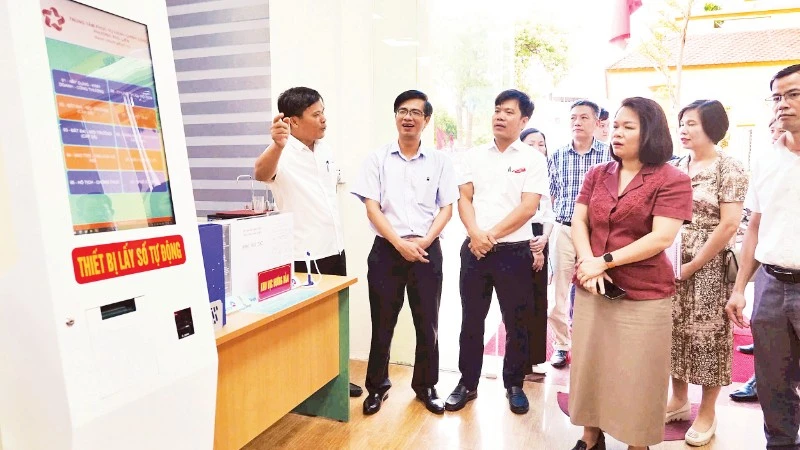It is forecast that by 2030, AI could contribute up to 80 billion USD to Viet Nam’s GDP if applied on a wide scale. However, such an achievement can only be realised if the country possesses a sufficiently strong pool of experts, engineers and data scientists capable of mastering and advancing AI technologies.
Supply falling short of demand
Aiming to build a smart city, Ho Chi Minh City has been actively implementing digital transformation and applying AI across many areas of social life. Therefore, developing and strengthening the AI human resources ecosystem plays an essential role in the current context.
The city’s advantage lies not only in being the nation’s economic hub but also in hosting numerous universities that train highly skilled human resources, including in the field of AI.
At present, around 35 universities in the city offer programmes in information and communications technology. However, only 14 of these provide training in AI, data science or data engineering, with a total annual intake of just over 1,000 undergraduates.
According to a survey by the University of Science under Viet Nam National University, Ho Chi Minh City, nearly 60% of businesses said that the current quality of AI personnel only partly meets their operational needs; nearly 26% said that AI human resource training has yet to meet the labour market’s requirements.
This indicates that the city’s AI workforce remains limited in both quantity and quality, insufficient to satisfy business demand. The city therefore needs to focus on training and developing personnel, especially in deep specialist skills aligned with emerging AI technologies.
At the same time, state policies supporting the enhancement of AI human resources are also essential.

Experts agree that, in the era of the fourth industrial revolution, AI has become a key driver of innovation and global economic growth.
For Ho Chi Minh City, in its pursuit of sustainable growth, developing AI human resources is not only a crucial factor for international integration but also an opportunity to enhance competitiveness and modernise socio-economic sectors.
However, alongside its great potential, the development of AI human resources faces numerous challenges, requiring comprehensive and effective solutions.
Pham Chi Thanh, Network and Computer Management Specialist at CJ Vina AGRI Co., Ltd., said that AI has become one of the most prominent high-tech trends and an indispensable part of modern life.
Nevertheless, the rapid advancement of AI has also exposed a critical issue – the shortage of human resources. To develop AI human resources, it is necessary to invest systematically in AI education and training; enhance international cooperation to learn from global experience and share resources; and encourage creativity and practical application through community and enterprise projects.
In addition, AI career orientation programmes should be developed for students, and AI research centres should be established to ensure balanced training and application across different sectors.
By implementing such strategies, the city could well become a regional and global centre for AI development.
A need for comprehensive solutions
According to Tran Linh Huan from Ho Chi Minh City University of Law, improving the quality of AI human resource development requires comprehensive and coordinated measures across multiple areas.
Firstly, training programmes need to be updated to reflect real-world developments and global AI technology trends, such as deep learning, generative AI and big data.
At the same time, cross-disciplinary skills such as AI ethics, social responsibility and problem-solving should be integrated into curricula to provide students with more well-rounded knowledge.
Practical training models should be expanded by developing real-world projects and case studies based on business challenges, helping students apply theoretical knowledge effectively in practice.
Huan also noted that universities must focus on developing their teaching staff and experts in the AI field. Priority should be given to retraining lecturers to update their knowledge of modern AI technologies, enabling them to better meet teaching and research demands.

Furthermore, attractive incentive mechanisms should be established to attract foreign researchers and AI specialists to teach and work in Viet Nam, thereby improving human resource quality and promoting international experience sharing.
The expert believes that close cooperation between universities and businesses is crucial to ensure that AI human resource training meets enterprise needs. This collaboration is considered an important solution for improving training quality and aligning it with labour market demands.
To achieve this, businesses should actively participate in designing training programmes to ensure that course content reflects practical requirements, enabling graduates to meet recruitment standards.
In addition, enterprises should invest in and sponsor research and development projects at universities, which would both strengthen the universities’ research capacity and enable businesses to tap into the creativity and talent of young researchers and students.
Such close collaboration not only benefits both sides but also contributes to developing high-quality human resources, fostering innovation and enhancing competitiveness in the marketplace.
















